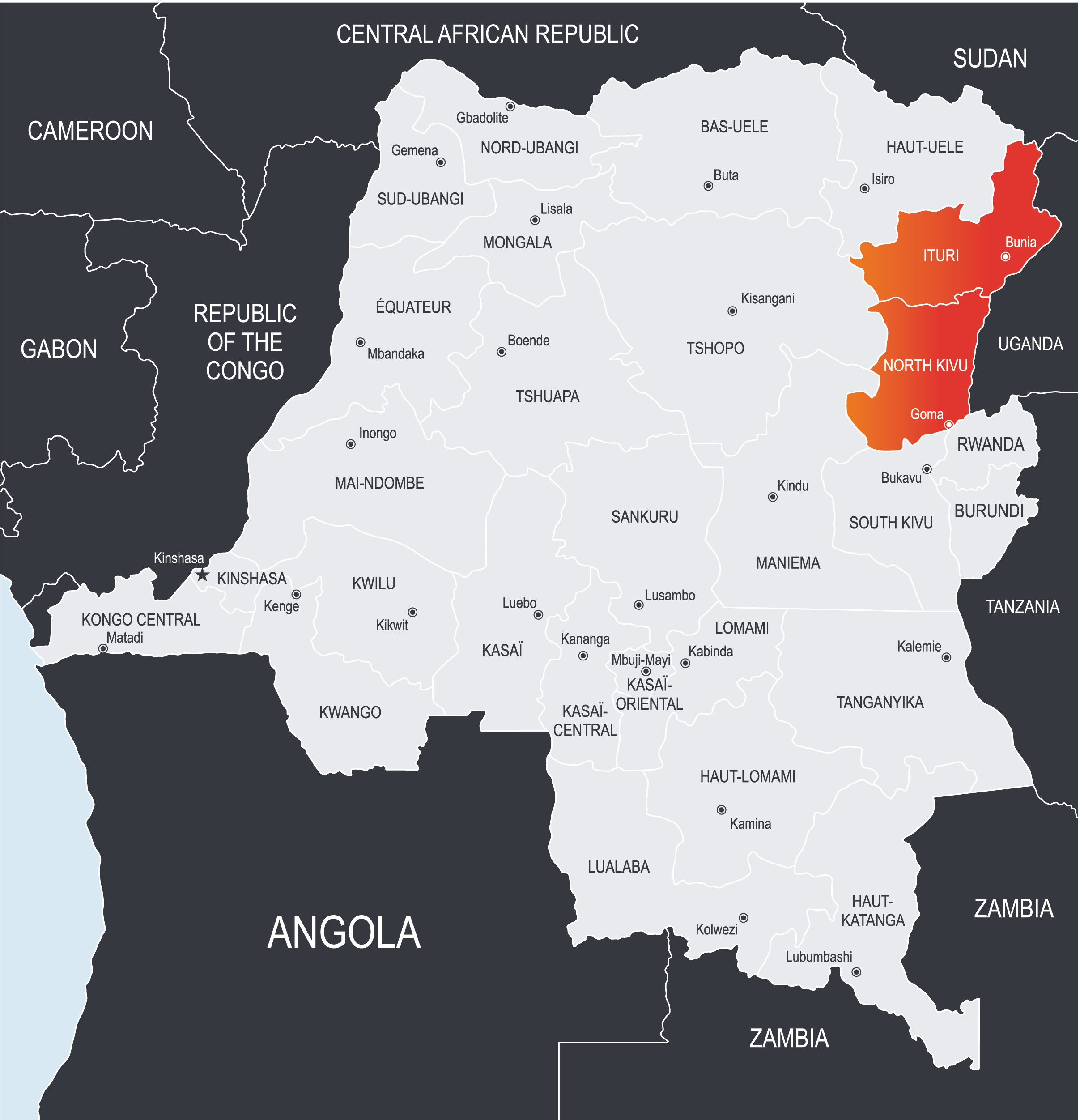Under Siege: The crisis in Eastern DRC
Rampant insecurity, near-daily attacks, and scores of kidnappings pushed President Felix Tshisekedi to implement a ‘state of siege’ in the North Kivu and Ituri provinces on 2 May 2021. Initially in place for thirty days, martial law has been extended eight times, and a ninth extension seems highly likely. As part of these security measures, which sees military rule replace civilian administration and government functions, the government has also deployed hundreds of soldiers to the provinces, and increased security operations to target rebel strongholds. Although some progress in increasing security has been made, efforts have been focused on strategic interests, leaving civilians vulnerable to continued attacks.
STRATEGIC PRIORITIES COULD MEAN SHORT TERM GAINS
Since the state of siege was implemented, the military has prioritised the safety of key supply routes, particularly those used by mining companies. The military has retaken Route Nationale 27 (National Road 27, NR27) a vital trade route which links Bunia – the capital of Ituri province – to Uganda, for example, and continues to provide security escorts to vehicles traveling along the NR4. While this has facilitated the transit of goods, and allowed for a reduction of attacks on commercial vehicles, these gains have come at the expense of certain communities.

INSECURITY PERSISTS
Despite the implementation of the state of siege, rebel attacks against civilians have continued, and, in some areas, increased. According to research house Kivu Security Tracker, 223 people were killed in May 2021 – after the siege was implemented – compared to 198 in April. Similarly, data from the Armed Conflict Location & Event Data Project (ACLED) shows that at least 45 abductions have taken place between May and September 2021, compared to 39 during the same reporting period in 2020.
The evidence suggests that in response to the siege, rebel groups, including the prominent Allied Democratic Front (ADF), have intensified attacks and kidnappings against civilian populations. Specifically, the Kivu Security Tracker has linked the ADF to the deaths of over 640 civilians and the kidnapping of numerous others this year. Furthermore, the ADF has become increasing brazen and brutal in their attacks showing increased resistance and resilience against the Congolese military. Yet, it is not only rebel groups that have upped the ante of violence in this conflict.
The increase in violence against civilians can also be explained by reported human rights violations by security services. The UNHCR for example, has recorded 25,000 human rights abuses in the DRC this year alone. And, in August, Minister of Human Rights, Fabrice Puela, admitted that while some progress has been made, soldiers have been found guilty of committing human rights abuses, including the alleged indiscriminate killings of women and children.
CRISIS CONTINUES
In light of the persistent insecurity, the crisis in North Kivu and Ituri is continuing, with the UNHCR claiming that more than a million Congolese have been internally displaced in the east of the country in 2021. President Tshisekedi’s military solution is failing and an alternative solution to resolving the crisis is not forthcoming. As such, the situation is likely to get worse before it gets better. This in turn could mean new security woes for commercial operators in the region as more brazen rebel groups, increasingly vulnerable civilians and ill-disciplined soldiers point to a more precarious operating environment going forward.
